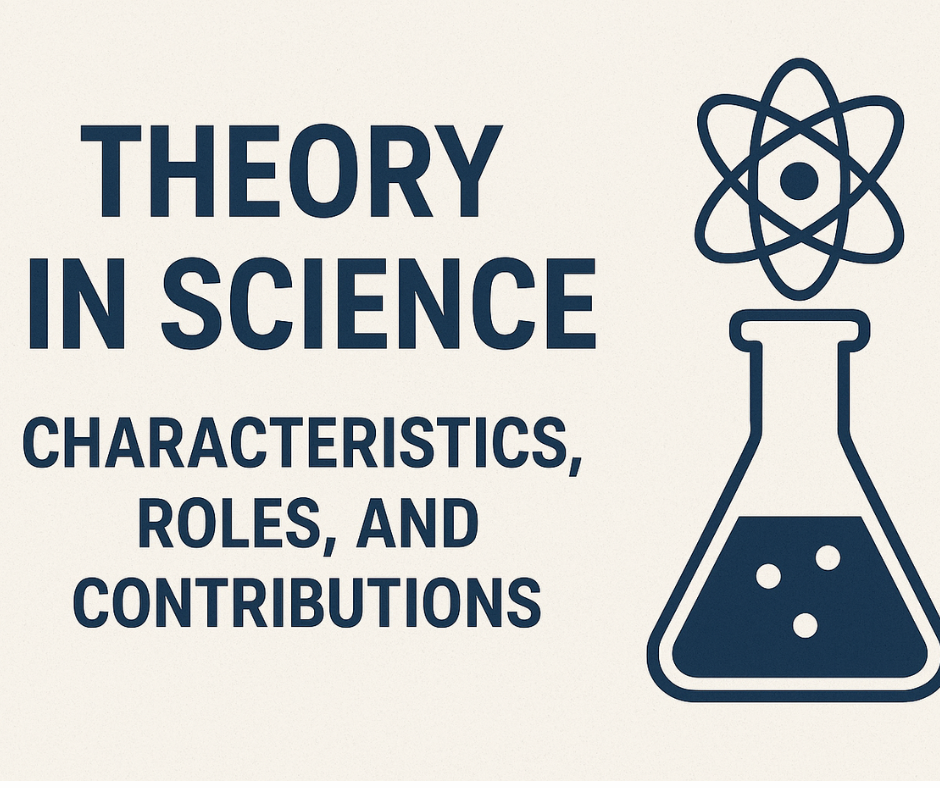The viability of theoretical science relies on a foundation of innate scientific preparation, while the effectiveness of the scientific method is rooted in its underlying scientific theory. The scientific method is not simply a fundamental concept; it serves as the driving force and primary objective of scientific inquiry. This forthcoming explanation of science aims to provide logical answers to essential questions such as who, how, where, what, and when.
Science is not satisfied with isolated events; rather, it is a continuous and ongoing process of analyzing and synthesizing specific occurrences. Through evaluation and analysis, science assesses the adequacy and accuracy of existing general knowledge in various ways. Initially, science formulates general hypotheses about different events and situations and attempts to test and verify them. When these hypotheses are validated through experiments, they begin to evolve into general principles and rules. Eventually, as similar events consistently align with a hypothesis, it can develop into a theory. Therefore, the ultimate goal of scientific research is to produce specific information.

There are varying perspectives on the concept of theory. Traditional social scientists, such as Émile Durkheim, Karl Marx, and Max Weber, view a theory as a set of unverifiable statements. In contrast, contemporary social researchers, including William J. Goode and K. Het, argue that scientific theories should focus on the characteristics of a phenomenon linked to a specific subject.
In his definition of theory, Ernest Greenwood says that “Theory maybe defined as a systematic interpretation in abstract terms of a generalizable trend that prevails within a set of varied facts, explaining the interrelationship among them .”
Again according to B.R. Bugeski, independent principles designed to account for a wide array of observations or facts, “G.R. Adams and J.D. Sehvaneveldt say,” theory is an explanation for events, a rationale for why something occurred; it is the scientific explanation of a condition that has been observed .
In general, a theory is a general statement about the relationship between two concepts or ideas. After reviewing various definitions of theory, the Encyclopedia of Social Research states that, “Data is a set of systematically related propositions that specify the causal relationships between different drivers.”
Characteristics of Theory:
Good scientific data must have characteristics to play an effective role in problem solving and scientific advancement. George J. Mouly has mentioned some essential characteristics of data. These are:
1. There is scope for independent and practical experimentation of interpretation and decision in the theoretical process;
2. Capable of being consistent with previously established data and current observations;
3. The theory is well-organized and applicable in the context of current knowledge;
4. The theory is consistent with the principle of thrift;
5. The theory is presented in simple language;
6. The presentation of the theory as a guide to research work is clear and concise;
7. The data is based on real events and relationships
Role of Theory:
Theory is mentioned as one of the main tools of science. This is said because of the functional role of theory in scientific method and scientific decision-making. Although the development, refinement, rejection of theory etc. occurs through research, the role of theory is very important in the emergence, management and decision-making of research. The roles that information can play in science and scientific research are:
1. Information specifies the scope of science through definition. That is, information helps in collecting relevant information of science and making decisions.
2. Theory provides the necessary conceptual framework to the scientist to organize, organize and relate relevant information to the relevant subject or information.
3. Theory summarizes various phenomena. Such summarization is done in two ways. For example: A. Through factual generalization; and b. Through generalization of the interrelationships between various conditions in the phenomenon
4. Theory makes predictions about various events. That is, when it summarizes various events, a prediction of their relationship naturally develops.
5. Theory identifies gaps in knowledge. The information that summarizes known events and makes predictions about them gives guidance for searching for information about the causal aspects of all these fields.
Contribution of theory in social research:
Conventional knowledge motivates social researchers or scientists to form new information and present new social thoughts based on that theoretical vision. In order to establish itself well, information encourages social researchers to express different predictions and new thoughts on its own basis. In that case, if the actual observation is against the theoretical research, then that theory is rejected as wrong. But if the actual observation is in favor of the theoretical phenomenon, it motivates the researcher to do research again and again. And this maximizes the certainty, consistency, accuracy, social suitability, etc. of that information. The areas in which scientific information makes an effective contribution to social research are:
1. Provides the researcher with necessary and significant directions for conducting effective research work in the fruitful social field;
2. Provides the researcher with relevant information that is relevant to the social phenomenon being investigated;
3. Provides information guidance in selecting the relevant target population and collecting relevant information;
4. Theory helps to make the results of specific social research meaningful;
5. Plays a special role in relating the results of research conducted on a specific topic to more general concepts.
6. Increases the effectiveness of data research by transforming theoretical statements into fully related concepts of real society and inventing successful connections.
Role of research in information development:
Although the contribution of theory in research is immense, the relationship between theory and research is not one-way. Rather, the direct and indirect contribution of research to information formation and development is observed in all fields, which is why the relationship between research and information is considered a two-way relationship.
A significant role of scientific research is to verify and test hypotheses inspired by conventional theories to prove the truth of the data. A well-organized theory makes statements about what possible conditions can arise in the social environment under certain circumstances. All these possible reasons are considered hypotheses, which await verification through actual research. When such a hypothesis is considered correct through actual experiments, it gains social recognition as a contribution of the researcher or researcher. And when that hypothesis is proven to be wrong in reality, an attempt is made to identify its weaknesses through some test and make structural changes to the original theory. Basically, both the correctness and falsity of the hypothesis given by the information demand testing. That is why an information research reveals various aspects.
Referring to the role of research in theory building, K. R. Merton said that scientific research directly plays a leading role in testing theories and accepting and rejecting hypotheses. Research plays an active role in the formation and development of information through four functions. For example:
1. Research initiates theory. That is, research takes the initial initiative to develop a new theory by forming hypotheses from existing data and verifying its truth;
2. Research helps in the reconstruction of existing data. That is, research helps in the complete organization of various aspects of existing data through experiments and makes it well-established;
3. Research re-establishes theory. That is, by observing the reality of research, the information encourages a renewed interest in new knowledge; and
4. Research explains information clearly. That is, it clearly highlights the research theory through accurate description and application of the concepts underlying the data. Although research and information appear in isolation in practice, they are generally considered to be complementary to each other. Research without theory is comparable to a boat without a rudder. Again, theory without research is the delusion of a madman. That is, research and theory are the promoters, directors, and complements of each other.



